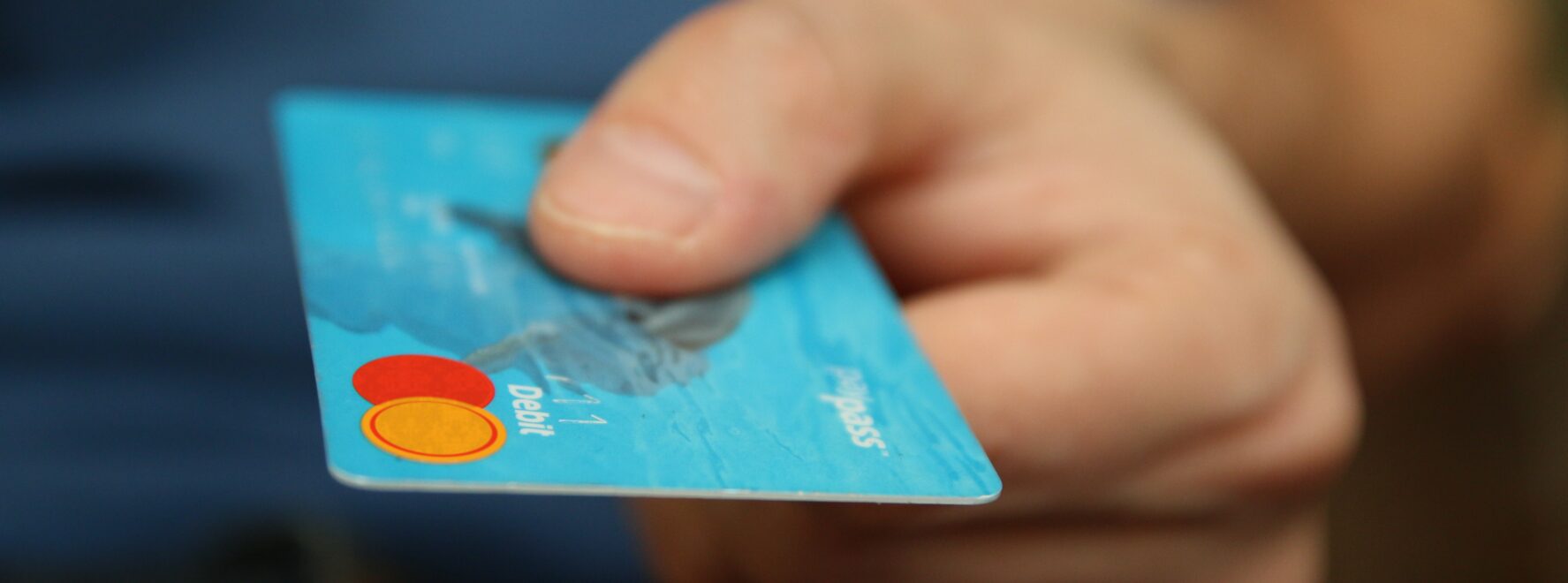If you need cash fast, you might be tempted to withdraw money on your business credit card. Doing so can be a quick and convenient way to get the funds you need. But it can also be very expensive.
This guide takes a detailed look at how cash advances work and how to pay them off.
What is a cash advance?
A cash advance is a way of obtaining immediate funds through your credit card. One of the most popular ways to do this is to withdraw money on your credit card from an ATM.
Most credit cards let you do this in the same way as a debit card. However, the difference is that you will need to pay back the amount you have withdrawn and interest will be added. Interest usually applies immediately – even if you pay off your credit card bill in full that month.
What transactions are considered to be a cash advance?
As well as withdrawing cash on your credit card, there are a number of other transactions that can be considered a cash advance. These include when you use your credit card to:
- Buy travel money and travellers’ cheques
- Buy foreign currency
- Buy gift vouchers
- Make a mortgage payment
- Pay a utility bill
- Buy a lottery ticket or scratch card (note that you can no longer use a credit card for other gambling transactions)
- Transfer money from your credit card to a current account
- Buy cryptocurrency
It’s important to check your card provider’s terms and conditions to be sure of what your provider classes as a cash advance.
Can I withdraw cash on my credit card?
Yes, you can use your credit card to withdraw cash from an ATM. Like with a debit card, you insert your credit card into the ATM and enter your PIN to withdraw the amount of cash you require. Alternatively, if your credit card provider has a bank branch, you can also withdraw money in branch. Some retailers will also let you get cashback when you pay for a purchase on your card.
However, while a debit card lets you withdraw the amount you have in your bank account, the amount of cash you can withdraw on your credit card will depend on a number of factors. These include:
- Your total credit limit: This is the maximum amount you can borrow on your credit card and you won’t be able to withdraw more than this. You should find your credit limit on any credit card statements you have.
- Your available credit: This is the amount of credit you have left once you deduct your current balance. For example, if you’ve already spent R1,000 of a R2,000 credit limit, you’d only have R1,000 remaining.
- Your cash advance limit: Your credit card provider might set a maximum percentage of your credit limit you can withdraw from – say 90%. So if your credit limit was R2,000, the maximum you could withdraw would be R1,800.
- ATM withdrawal limits: Some ATMs also impose limits on how much you can withdraw in one transaction, say R250.
What is the cost of withdrawing cash on a credit card?
Withdrawing cash on a credit card can be a very costly exercise. For a start, you’ll usually need to pay a cash advance fee of around 3%. So if you withdrew R500, you’d pay R15. On top of this, interest is charged daily.
Usually when you use your credit card to make a purchase, you have what’s known as a “grace period”. This is a set number of days, usually up to 56, during which no interest is charged. If you pay off your balance in full by the statement due date, you won’t pay any interest.
By contrast, with a cash advance, there is no grace period and you’ll pay interest from the day you get your cash until the day you pay off the balance. Interest rates are typically higher than for other types of transaction too, which means it can be a very expensive option.
When should I consider taking out a cash advance?
If you’re considering taking out a cash advance, it’s important to think about whether you really need to get hold of cash in this way or whether there are any alternative options – such as taking out a business loan or borrowing money from friends or family.
If you do need to use a cash advance, keep the following points in mind:
Key considerations
- The interest rate: Because interest is charged daily, you want to find a credit card that charges the least amount of interest. It’s also important to pay back your balance as quickly as you can to minimise the cost.
- The cash advance fee: Although most credit cards charge a cash advance fee, you might be lucky enough to find one that will waive this fee, or charge a slightly lower one. Make sure you check for minimum charges though, particularly if you plan to withdraw small amounts.
- The amount you can withdraw: Check your credit limit as well as how much of this your card provider will allow you to use for cash advances. Keep in mind that while you don’t want to be making lots of little withdrawals, it’s best to keep your borrowing to a minimum.
- Your credit score: Withdrawing cash on your credit card will leave a mark on your credit file for other lenders to see. This could affect your ability to get credit in the future. It’s particularly important to keep this in mind if your credit rating is already suffering.
How do I compare business credit cards?
When comparing business credit cards, you’ll need to think about what you plan to use your card for and which factors are most important to you. Keep the following in mind to help you find the most suitable card for your business:
- Eligibility requirements: Some business credit cards might require you to have been trading for a certain length of time or there might be a minimum revenue requirement. Be sure to check as there’s no point applying for a card you’ll get rejected for. Some providers will offer an eligibility checker to show you the cards you’re most likely to get accepted for. These use a “soft” search of your credit file and won’t hurt your credit score.
- Fees and charges: Some business credit cards charge annual or monthly fees, while you’ll also want to consider cash advance fees and, if you plan to use your credit card abroad, whether there are any foreign transaction fees.
- The interest rate: Also check how much interest you’ll be charged if you don’t pay off your balance in full each month, or if you carry out a cash advance. Ideally, you’ll want to find the lowest rate possible.
- Additional perks: Some business credit cards also offer benefits such as cashback or reward points on your spending, travel insurance, access to airport lounges, fee-free foreign transactions and the option to connect to accounting software so you can sync your card transactions.
- Additional cardholders: If you’d like to be able to issue credit cards to your staff to manage employee expenses, check whether there is a limit to how many additional cardholders you can have.







 yet? Register here!
yet? Register here!